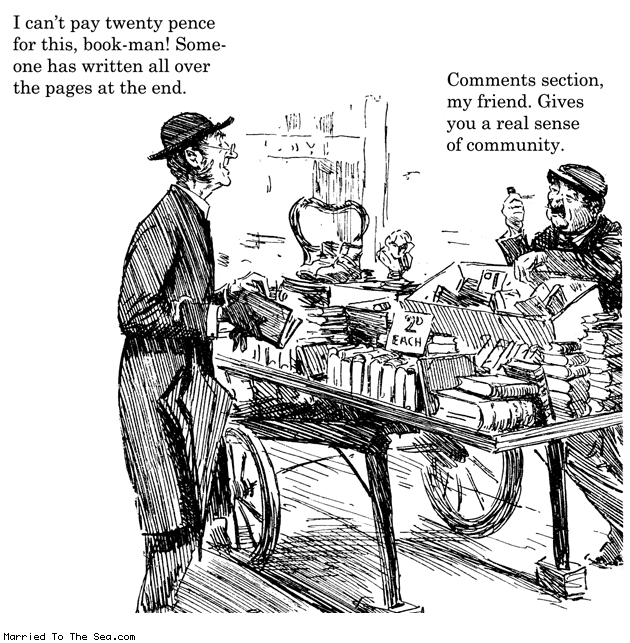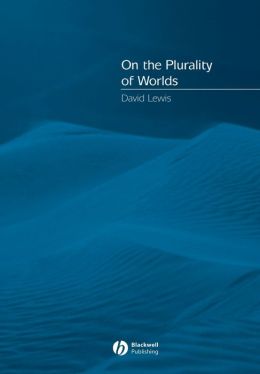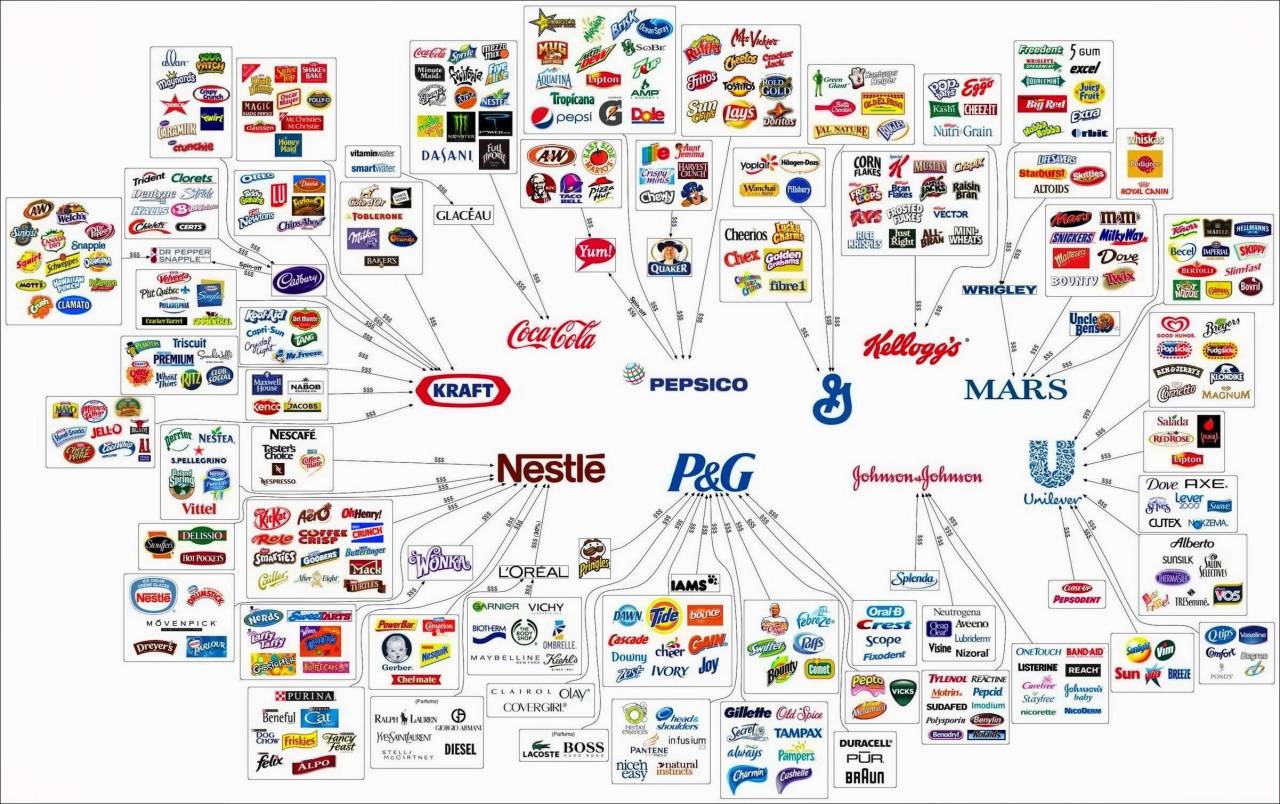One hundred and four years ago, in 1909, E.M. Forster released a short novella called The Machine Stops. In this science-fiction parable, Forster predicted the isolations of the digital age with a rather uncanny accuracy. There are parallels in the story to Wikipedia, TED lectures, Facebook, and all sorts of electronic devices. The most salient point of the story is that all our technology, built on the wisdom that was to free us from religious superstition, is yet again enslaving us to a new God, making us more dependent and helpless than ever.

In Forster's dystopia, nearly everyone lives underground, in either of two stations. Everyone is allocated their own room, which provides for their every need at the press of a button. People never leave their room, so they no longer communicate with each other directly. In fact, communicating 'directly' is seen as something unseemly and unbecoming. Instead, they do what most of us in the real world are now doing on a daily basis, and communicate by technology, in something that is akin to what we now call videoconferencing (though the face of the other is only calculated, not actually projected). Forster points out that this is all good and well, but it is no replacement for face-to-face interaction.
She fancied that he looked sad. She could not be sure, for the Machine did not transmit nuances of expression. It only gave a general idea of people – an idea that was good enough for all practical purposes, Vashti thought. The imponderable bloom, declared by a discredited philosophy to be the actual essence of intercourse, was rightly ignored by the Machine, just as the imponderable bloom of the grape was ignored by the manufacturers of articial fruit. Something 'good enough' had long since been accepted by our race.
Is it possible that in restructuring our world to run along our electronic wires, we are also constantly settling for something 'good enough'? Whatever emotions we emit, whatever pheromones we expound, are not transmitted. They twist the tongues of the wires. They are of a different dialect, and they do not cross the language barrier. Something is always lost when we translate the analog to the digital. It is an approximation. Even if we humans cannot discern the difference, that does not mean that it does not unconsciously influence us.
Man is the measure
Man is the measure. That was my first lesson. Man's feet are the measure for distance, his hands are the measure for ownership, his body is the measure for all that is lovable and desirable and strong.
In her wonderful book Wanderlust, American writer Rebecca Solnit gives us a history of walking. Of walking for pleasure, not just for practical purpose. One of her more interesting ideas is her suspicion that “the mind, like the feet, works at three miles an hour”. When we step in a car, it is like teleportation, we get in at point A and out at point B, and we lose all sense of space. Though everyone could see this when Forster ridiculed it a century ago, when it concerned people living underground and never going out, apparently it is still too obscured a point for most in our present world.
According to Plato, it was Protagoras, a Greek philosopher from before the time of Socrates, who said “man is the measure of all things.” Since we know little of the context in which he uttered those words, it can be interpreted in wildly different ways. Most, however, take it to mean (broadly) that the world or – if you will allow me to be a broken record – reality, originates in the mind.
By linking the mind, as the origin of all things, back to the measuring of space, to transportation, it is likely Forster came to the same conclusions as Solnit. Though 1909 seems a long time ago, it was of course an age on the threshold of the automobile era, with the faint shadows and outlines of the flying machines we now call airplanes already looming above.
These airplanes feature as zeppelin-like airships in the book, and they are one of the few remnants of the old age. No one uses them for pleasure. They are the only means of getting from the one station to the other, but people experience the direct contact they have with other people on that ship as highly uncomfortable. Go on an aeroplane in our age, and you will find this not such an outlandish feeling. Most people are earplugged with music leaking out, or are engaged with their smartphone or laptop. The security instructions are often no longer given by a flesh-and-blood stewardess, but from a recorded 'performance' on the video screens. Stewardesses have now truly become mere 'waitresses in the sky'.
Man is no longer the measure of all things. We plan our cities according to the whims of cars and we would fain believe a machine than our own selves, as the most loyal iTravelers can easily attest to. We all have an unending faith in the power (and the loving grace) of machines. They cannot be wrong, or can they?
Wikipedia is the measure
To many people nowadays, Wikipedia is one of the grand achievements of the digital age. And it is. In a relatively short time, an accumulation of information has been collected that is unrivalled by any before. It is also data of a different nature than any we've had before. Wikipedia is a tremendously useful source of information, as long as we are all aware of this nature. In his book You Are Not a Gadget, Jaron Lanier addresses the problems:
Wikipedia, for instance, works on what I call the Oracle illusion, in which knowledge of the human authorship of a text is suppressed in order to give the text superhuman validity. Traditional holy books work in exactly the same way and present many of the same problems.
And indeed, The Machine that controls everything in this story, is slowly revered and turned into religion, as, again, our loyal iTravelers can tell us all about. The only physical book that is left in the future of the story is the so-called Book of the Machine that every room comes furnished with. They are mere manuals, but over time they become the holy books of this new religion, they whisper to their readers and comfort them. Along the way, a reprint of the book is ordered, which features on the first page the phrase: “blessed is the Machine.”
Wikipedia was already parodied before it came into existence. The Hitchhiker's Guide in Douglas Adams' eponymous series is a collaborative effort encyclopaedia with entries on all kinds of random subjects. At some point, Arthur Dent helps to change the entry for Earth from “harmless” to “mostly harmless.” The short entry for Earth, especially compared to extremely long essays on niche subjects like Vogon poetry is a good joke that, itself, has parallels to Wikipedia. Some people have even made this into a sport, called wiki-groaning.
There is a series of Greatest Hits records in music that have been inspired by a classic Elvis compilation, called 50,000,000 Elvis fans can't be wrong. Bands like Bon Jovi, White Stripes, The Fall and Soulwax have borrowed this phrase for their own compilation records. Though perhaps not always applied earnestly, it nevertheless speaks of an instinctive trust we have in numbers. This trust can easily be disproved by looking at almost any history book, yet we cannot shake it off. The hive, or the cloud, or the noosphere, that we base our Web 2.0 world on, is also based on this fallacy. Forster had envisioned it all along. In the dystopia, people can give 'lectures' from their home on whatever subject they specialize in, that are then broadcasted to whomever is interested (remind you of something?). One famous lecturer, impelled by the disgust of anything 'direct', preaches on the power of numbers:
First-hand ideas do not really exist. They are but the physical impressions produced by live and fear, and on this gross foundation who could erect a philosophy. Let your ideas be second-hand, and if possible tenth-hand, for then they will be far removed from that disturbing element – direct observation. Do not learn anything about this subject of mine – the French Revolution. Learn instead what I think that Enicharmon thought Urizen thought Gutch thought Ho-Yung thought Chi-Bo-Sing thought Lafcadio Hearn thought Carlyle thought Mirabeau said about the French Revolution. Through the medium of these ten great minds, the blood that was shed at Paris and the windows that were broken at Versailles will be clarified to an idea which you may employ most profitably in your daily lives. But be sure that the intermediates are many and varied, for in history one authority exists to counteract another. Urizen must counteract the scepticism of Ho-Yung and Enicharmon, I must myself counteract the impetuosity of Gutch. You who listen to me are in a better position to judge about the French Revolution than I am. Your descendents will be even in a better position than you, for they will learn what you think I think, and yet another intermediate will be added to the chain. And in time there will come a generation that had got beyond facts, beyond impressions, a generation absolutely colourless, a generation
seraphically free
from taint of personality,
which will see the French revolution not as it happened, nor as they would like it to have happened, but as it would have happened, had it taken place in the days of the Machine.
Maybe, just maybe, the ancient Greeks were wrong – or perhaps, we misunderstood. Maybe, more specifically, we need to say that “men are the measure of all things.” The more, the merrier. That is the mentality of the hive mind: 19,453,568 Wikipedia contributors can't be wrong.
Towards singularity
An interesting example of computers trying to outsmart us occurs when you google the word singularity. As is the norm these days, the first result that comes up is the Wikipedia entry. In this case, though, two Wikis top the list. The first is technological singularity. This is indeed the thing I was looking for. The second is just singularity, which brings you to a so-called disambiguation page, a portal to all the other possible singularities. Do more people generally care about the technological variant than the mathematical concept it was based on? Probably. However, Google is rather silent about its algorithms for search results (though Eli Pariser gave it the old college try). Primarily, I suppose, because they do not want webmasters to manipulate their website just to get higher up in the results. Secondly, Google more than anyone else knows the value of data; this algorithm that defines the quests of so many people, is especially valuable. But there might also be another problem. Perhaps, within the large confines of the Google complex, the specifics of that algorithm are so divided up that no one knows the complete truth anymore.
This last explanation is a cornerstone element of the hive mentality: all together (we k)now. It is almost a modern version of gnosticism, with us all fractions of the same divine light cast off from God, wanting to reunite. And by God I mean The Machine.
No one confessed the machine was out of hand. Year by year it was served with increased efficiency and decreased intelligence. The better a man knew his own duties upon it, the less he understood the duties of his neighbour, and in all the world there was not one who understood the monster as a whole. Those master brains had perished. They had left full directions, it is true, and their successors had each of them mastered a portion of those directions. But Humanity, in its desire for comfort, had over-reached itself. It had exploited the riches of nature too far. Quietly and complacently, it was sinking into decadence, and progress had come to mean the progress of the Machine.
The technological singularity is defined as an age in which artificial intelligence outstrips our own, and the salient point of it is that because it goes over our heads, no one will know what happens next. Some predict heaven, others hell. If we define our world by this concept, if this is the future we are staring into, then progress truly has come to mean the progress of the Machine.

But is it possible that progress of the Machine correlates with the regress of man? Every new appliance, every app developed, makes live more convenient for us, but they are all crutches to lean on that we never knew we needed. They are the pharmacists who sell us pills to keep their little money machine running, pills that just make us need more pills. We are helpless without our new crutches, without our omniscient glasses, without our electronic insoles. We used to laugh at the stupidity of the Microsoft Office paperclip. If a future Machine would stop, we might then even be left wanting for this also-ran wisdom of the dancing paperclip.
She had never known silence, and the coming of it nearly killed her – it did kill many thousands of people outright. Ever since her birth she had been surrounded by the steady hum. It was to the ear what artificial air was to the lungs, and agonizing pains shot across her head.
The point being, that technological advancement is not always advancement in general. Just like Wikipedia does for singularity, we should start disambiguating between the two again. Progress should not mean the progress of the machine, nor even, I would venture, solely the progress of mankind. It should be the progress of harmony, of happiness, of the world at large. Otherwise, with our current tunnel vision, we might soon be living underground as well.
E.M. Forster's The Machine Stops is in the public domain. You can read it here or Google it yourself and see what comes up for you.
 Ugo Gianattasio (1888-1958), untitled, 1920
Ugo Gianattasio (1888-1958), untitled, 1920



 David Kellogg Lewis was an American philosopher who has been very influential during the 20th century. His best known thesis, modal realism, is also his most remarkable. It claims that there are an infinity of possible worlds (think parallel universes), and not just hypothetically: each of them is as real as the one we live in. Every logically possible universe exists. Lewis' thesis was foreshadowed by many sci-fi stories. In one of them, Fredric Brown's What Mad Universe (via
David Kellogg Lewis was an American philosopher who has been very influential during the 20th century. His best known thesis, modal realism, is also his most remarkable. It claims that there are an infinity of possible worlds (think parallel universes), and not just hypothetically: each of them is as real as the one we live in. Every logically possible universe exists. Lewis' thesis was foreshadowed by many sci-fi stories. In one of them, Fredric Brown's What Mad Universe (via 
 Willingly? Well, sort of. We agreed, after all. As the documentary
Willingly? Well, sort of. We agreed, after all. As the documentary 






 DAUGHN GIBSON
DAUGHN GIBSON